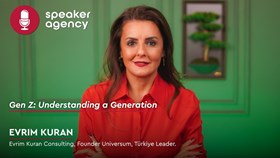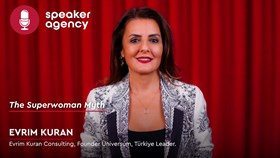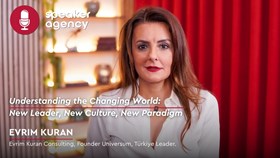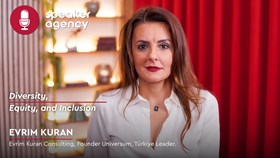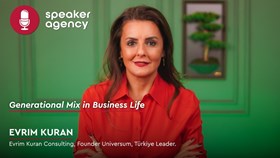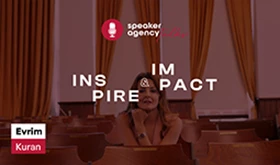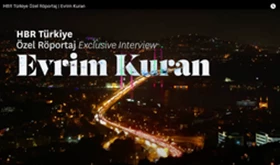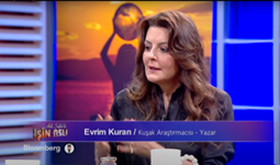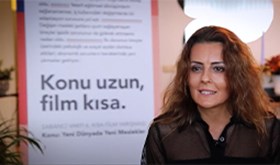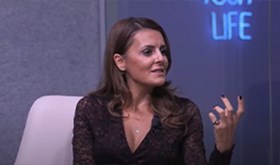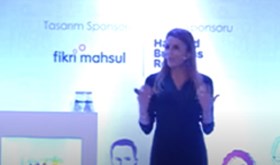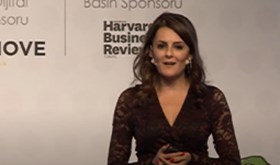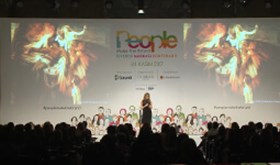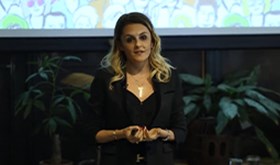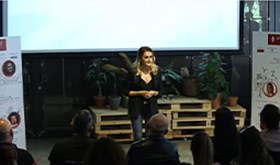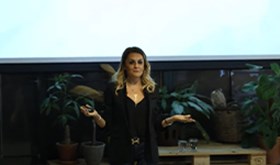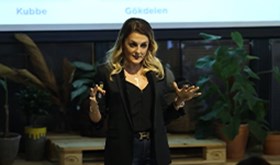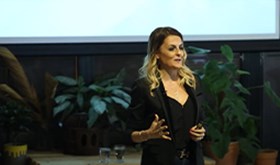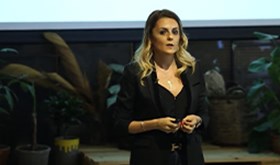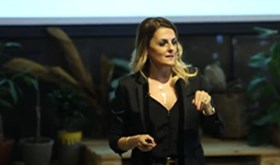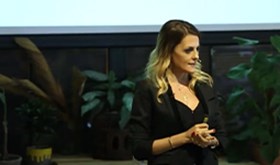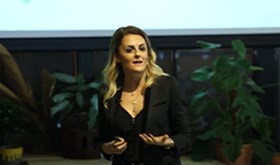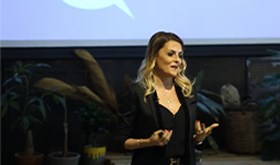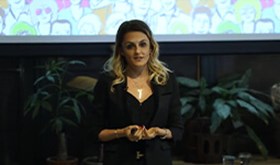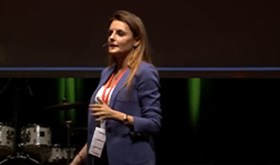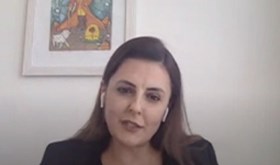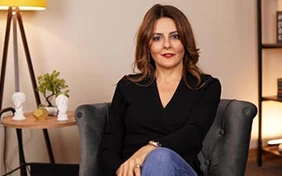The business world, shaken by the pandemic, is now talking about transformation rather than change. In this compelling talk, Evrim Kuran looks at the future of work through the eyes of the youngest generation, explaining how employee expectations, leadership concepts, and organizational structures are being rewritten. Topics such as critical competencies, psychological safety, AI, and how the gig economy is affecting business models are at the heart of the shift from the comfort zone to the learning zone as we head towards 2030.
In this new world where projects replace titles, careers become mobile, and experiential learning rises, Evrim Kuran addresses diversity, equality, and inclusion not just in words but in deeds. In an era of mask-free leadership shaped by transparency, empathy, and purpose, she discusses how employer brands should position themselves to attract talent. A guiding talk for anyone who wants to read the future correctly.
Psychological Capital in Work Life
Crises create not only economic but also emotional turmoil. In this talk, Evrim Kuran puts psychological capital, one of the most valuable assets of the 21st century, under the microscope. She reveals how fundamental components such as hope, self-efficacy, resilience, and optimism shape all aspects of work life, from leadership to motivation, conflict management to organizational commitment.
In times of uncertainty, “falling seven times and getting up eight” is not easy. Kuran explains how the psychological resources that fuel this resilience can be developed and how organizations can guide this process, offering participants opportunities for transformation at both the individual and organizational levels. Powerful, inspiring content for anyone seeking to increase their psychological capital.
Employer Branding in Difficult Times
Difficult times are when the true power of employer branding is tested. In this talk, Evrim Kuran emphasizes that employer branding is not just a communication strategy for good times; it is the cornerstone for maintaining employee loyalty, trust, and commitment in times of crisis. Questions such as what Employee Value Proposition (EVP) is, how it is created, and how employer branding aligns with corporate branding are addressed with examples from Turkey and around the world.
Gen Z: Understanding a Generation
Comprising approximately one-third of Turkey's population, Generation Z brings a new perspective to every field, from business to education. In this talk, Evrim Kuran reveals Generation Z's way of thinking, lifestyle habits, and worldview through comprehensive research. It provides a solid foundation for understanding how this generation differs from others, both in Turkey and globally, and what matters to them.
The expectations of Generation Z representatives from different socioeconomic strata and what kind of values they expect from the business world are discussed in detail in Evrim Kuran's program. Accompanied by the question, “Are we ready for Generation Z?”, it invites us to think about interaction and communication models suitable for the new generation.
Generational Mix in Organizations
In this talk, Evrim Kuran takes an in-depth look at the ways of thinking, living, and working of different generations (Baby Boomers, X, Y, and Z) coexisting in the workplace. It sheds light on the differences between perspectives that begin with “We used to...” and the rapidly changing business world of the 21st century, guiding participants in developing intergenerational communication and understanding.
Comparing the values, expectations, and roles within organizational structures of each generation, from Baby Boomers to Generation Z, the program focuses particularly on leadership potential and how to promote harmony rather than conflict in the workplace. Evrim Kuran's insights on building bridges between generations offer listeners ways to manage multigenerational teams more effectively.
Organizational Culture
In this talk, Evrim Kuran emphasizes that organizational culture is not just a “climate,” but a fundamental building block that shapes an organization's ways of working, values, and behavior patterns. She explains with examples how culture is formed, how it can be transformed, and how it can be made sustainable within an organization through the teach-define-live-measure-reward cycle.
This program also addresses the necessity of aligning culture with strategy, the impact of corporate values on practical life, and the reflections of culture on employer branding. Evrim Kuran also shares how internal communication and leadership can be grounded in cultural foundations through the Cultural Archetype Model. It offers an inspiring roadmap for all professionals who want to understand and transform corporate culture.
Psychological Capital in the Development of the New Generation
In this talk, Evrim Kuran takes an in-depth look at the concept of psychological capital, which is considered critical for individuals to be successful and happy in both their professional and personal lives in the 21st century. The role of components such as hope, self-efficacy, resilience, and optimism in the personal and professional development of the new generation is conveyed through academic data and field observations.
Topics such as how young people can increase their capacity to “fall seven times and get up eight times” in a world shaped by uncertainty and crises, and the differences between hope and optimism, are explained in simple and effective language. Participants discover concrete tools to increase psychological resilience while gaining practical insights to build stronger bonds with the new generation.
New Generations and the New World of Learning
In this program, Evrim Kuran examines the convergence of different generations in the learning environment, from Baby Boomers to Generation Z, and the dynamics of this multigenerational structure. While addressing how teaching and learning generations adapt to different learning habits, she discusses how learning can be transformed into a strategic advantage in the face of talent scarcity in the 21st century.
The approaches demanded by new generations instead of the traditional educational approach are introduced through new learning paradigms such as collaborative, micro, and intuitive learning. With the “flipped learning” model replacing traditional education, participants prepare for the future with more solid steps for both individual and organizational development.
Diversity, Equity, and Inclusion
In this talk, Evrim Kuran emphasizes that companies must focus not only on financial success but also on a transparent, inclusive, and equitable organizational culture. Diversity and inclusion management is no longer merely an option but has become a strategic necessity in terms of social impact and sustainability.
Participants will discover how embracing differences, the principle of fairness, and psychological safety can be supported by concrete policies in the workplace, accompanied by research examples from Turkey and around the world. This program offers effective insights into tools for combating discrimination, ways to create equal opportunities, and increasing corporate impact.
Parenting the Digital Generation
In this program, Evrim Kuran presents a new perspective on parenting in the context of changing demographics and generations. Focusing on understanding rather than judging the Y, Z, and Alpha generations growing up in the digital age, this talk emphasizes the need for parents to develop their own digital literacy.
It also discusses the impact of learning, development, and socialization dynamics in digital environments on children and shares important information on how families can equip themselves against new threats of the age, such as cyberbullying. The content highlights the requirements of the digital age for parents to build healthier and more inclusive relationships with their children.



